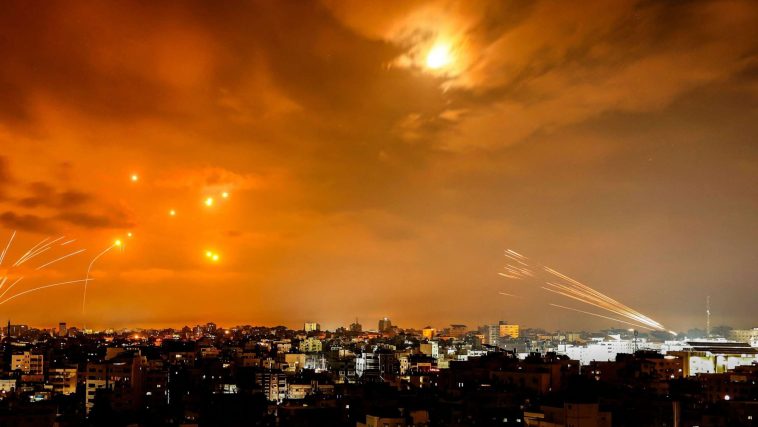Israeli forces have recently engaged in artillery fire towards southern Lebanon, sparking concerns about the escalating tensions between the two countries. Hezbollah, a prominent political and militant organization in Lebanon, has denied any involvement in the clashes or any infiltration attempt into Israel. While Iranian Supreme Leader Ali Khamenei denied Iran’s direct involvement in Hamas’ recent attack on Israel, he made remarks that expressed support for those behind the attack on the Zionist regime. These developments have raised questions about Iran’s role in the ongoing conflicts.
Western and Middle Eastern intelligence officials have accused Iran of providing training, financial support, and other assistance to Palestinian militants in the Gaza Strip. These militants carried out a multifront assault on Israel over the weekend, which has further complicated the situation. The leaders of France and Germany have signaled that they are still investigating for evidence of Tehran’s direct involvement in the Hamas attacks. However, analysts interviewed by NPR believe that the connection between Iran and the attacks cannot be ignored.
The conflict between Israel and Hamas goes beyond just Hamas’ control over the Gaza Strip since 2007. Other militant groups are also engaged in fighting with Israel. Recent reports indicate that militant groups in southern Lebanon have intensified their attacks on northern Israel, leading to retaliatory actions from the Israeli military. While the fighting in the north is on a smaller scale compared to the situation near Gaza, it has raised concerns about a potential wider regional escalation of violence.
Lina Khatib, director of the SOAS Middle East Institute at the University of London, explains that Hezbollah and Hamas have long maintained coordination despite their religious differences. Both groups receive support from Iran in various forms, including financial, military, and rhetorical assistance. Israel’s ambassador to the United Nations, Gilad Erdan, has mentioned meetings between Iranian President Ebrahim Raisi and Hamas leaders, highlighting the close ties between Iran and these militant organizations.
Iran’s influence over Hamas and Hezbollah varies to some extent, with more autonomy given to the Sunni Hamas group. However, it is believed that Hezbollah’s secretary-general Nasrallah would not authorize major attacks against Israel without Iranian approval. State sponsorship of terrorism is a risky game, and by linking itself with Hamas and Hezbollah, Iran increases the likelihood of direct retaliation from Israel. This strengthens the notion of “the resistance camp” among Israeli intelligence analysts, referring to the common goal of creating a Muslim-run land from the Jordan River to the Mediterranean Sea.
Neomi Neumann, former head of research for the Israeli Security Agency, points out the differences in capabilities between Hezbollah and Hamas. While Hezbollah has a larger and better-equipped fighting force, Hamas has impressed its Iranian backers and Hezbollah through its recent actions. In 2021, Hamas united various Palestinian groups during clashes with Israel, showcasing its capabilities and becoming a necessary player in the fight against Israel, as acknowledged by Iran and Hezbollah.
The ongoing conflict has highlighted Hamas’ improved capabilities as they breached Israeli fortifications around Gaza and launched thousands of rockets towards Israel. This has resulted in significant casualties and has been termed ‘the worst day in Israeli history.’ It is important to acknowledge Iran’s role in enabling Hamas’ actions, as without Iran’s support, none of this would be possible.



